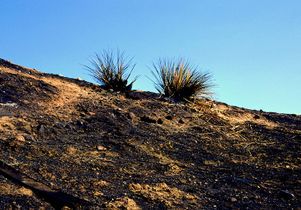$1.2 Mil Awarded to Research Projects to Help Los Angeles County Thrive Despite Climate Change
Published on by Naizam (Nai) Jaffer, Municipal Operations Manager (Water, Wastewater, Stormwater, Roads, & Parks) in Academic
CLA’s Sustainable LA Grand Challenge announced the awarding of its first competitive research grants today, providing $1.2 million to 11 projects, which range from developing lightweight solar panels that double as batteries to exploring how to unite the region’s 215 water systems to minimize imported water.
These and $300,000 in other recent grants mark the first time that some of the wide range of environmental and sustainability research already conducted at UCLA will be funded directly by the challenge. The Sustainable LA Grand Challenge is a university-wide research initiative to transition the Los Angeles region to 100 percent renewable energy, 100 percent local water and enhanced ecosystem health by 2050. The project unites more than 150 faculty from 70 different departments to ensure that quality of life continues to improve even in a hotter, more populous Los Angeles.
“This is an important step in making greater Los Angeles sustainable,” said Mark Gold, UCLA’s associate vice chancellor for environment and sustainability who oversees Sustainable LA. “UCLA has an extraordinary range of expertise, and the Grand Challenge directs that expertise toward creating the new technologies, policies and cultural shifts that will transform Los Angeles County. I’m excited that we have professors across campus working together on solving our megacity’s most intractable problems.”
The selection process for funding the 11 projects was guided in part by the research priorities identified in Sustainable LA’s new Five-Year Work Plan, a futuristic vision of Los Angeles with a detailed proposal for how the challenge will achieve its goals.
The competitive grants are possible thanks to the Anthony and Jeanne Pritzker Family Foundation, which is providing funding for the Grand Challenge, including research that will implement the Sustainable LA Work Plan. Their generous $5 million gift will support at least two more rounds of similar grants in 2017 and 2018. The first round of projects are:
Energy
- Fuel-efficient cars pay for themselves fastest for owners who drive the most. Researchers examine whether drivers for ridesharing companies could be used to speed up the adoption of zero-emission vehicles in Los Angeles. Researchers: Brian Taylor and Juan Matute (Luskin School of Public Affairs).

- Algae-based biofuels can be grown in part from industrial carbon dioxide emissions, municipal food waste and green waste streams, and agricultural waste. Researchers are examining the potential costs and effects on air pollution. Researchers: Deepak Rajagopal (Institute of the Environment and Sustainability) and Suzanne Paulson (atmospheric and oceanic sciences).
- Flexible solar panels and flexible batteries have both been demonstrated separately and could make things like power-collecting window shades a reality, but solar panels can’t store energy without batteries. Researchers are working on a paper-thin device to unite the two. Researchers: Bruce Dunn and Yang Yang (Henry Samueli School of Engineering and Applied Science), with Kevin Daly (School of the Arts and Architecture).
- A “smart grid” that allows customers to generate power for the electric grid will require electric utilities to transform. Researchers will look at two major regional utilities and their different regulatory models to determine how to achieve that transformation. Researchers: Ann Carlson (UCLA School of Law) and William Boyd (University of Colorado Law School).
Water
- Membranes to pull nutrients out of wastewater in treatment plants could be the wave of the future, but membranes get clogged. UCLA researchers have developed a new coating system to make the membranes last longer and produce more freshwater. Researchers: Richard Kaner (chemistry and biochemistry) with Eric Hoek and Shaily Mahendra (Henry Samueli School of Engineering and Applied Science).
- Los Angeles needs local water, but regional infrastructure pushes rain to the ocean to avoid flooding. Researchers will create a regional climate model to better project heavy rainfall events to guide the development of a better water system and enhance local water supplies. Researchers: Alex Hall (Institute of the Environment and Sustainability) and David Neelin (atmospheric and oceanic sciences) with Dennis Lettenmaier (geography).
- All 215 community water systems in Los Angeles will have to work together for the region to shift to 100 percent local water. This project will create a feasible local water market for trading and selling county water resources, with input from stakeholders. Researcher: J.R. DeShazo (Luskin School of Public Affairs).
- Women disproportionately obtain and manage household water in developing nations, and housework remains highly gendered in the United States. Researchers will use surveys and in-home study to determine whether there are gender differences in residential water use that could be used to improve conservation strategies. Researchers: Jessica Cattelino (anthropology) and Rachel Lee (English and gender studies).
Attached link
http://newsroom.ucla.edu/releases/1-2-million-awarded-to-research-projects-to-help-los-angeles-county-thrive-despite-climate-changeTaxonomy
- Research
- Research
- Research